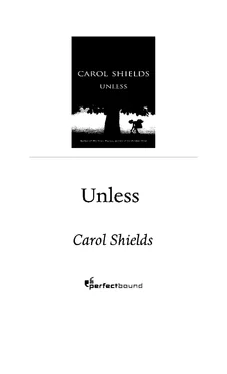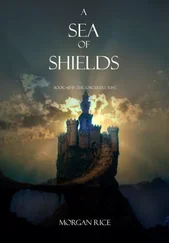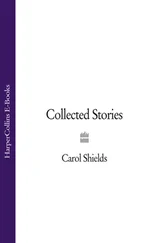Carol Shields - Unless
Здесь есть возможность читать онлайн «Carol Shields - Unless» — ознакомительный отрывок электронной книги совершенно бесплатно, а после прочтения отрывка купить полную версию. В некоторых случаях можно слушать аудио, скачать через торрент в формате fb2 и присутствует краткое содержание. Жанр: Современная проза, на английском языке. Описание произведения, (предисловие) а так же отзывы посетителей доступны на портале библиотеки ЛибКат.
- Название:Unless
- Автор:
- Жанр:
- Год:неизвестен
- ISBN:нет данных
- Рейтинг книги:4 / 5. Голосов: 1
-
Избранное:Добавить в избранное
- Отзывы:
-
Ваша оценка:
- 80
- 1
- 2
- 3
- 4
- 5
Unless: краткое содержание, описание и аннотация
Предлагаем к чтению аннотацию, описание, краткое содержание или предисловие (зависит от того, что написал сам автор книги «Unless»). Если вы не нашли необходимую информацию о книге — напишите в комментариях, мы постараемся отыскать её.
Unless — читать онлайн ознакомительный отрывок
Ниже представлен текст книги, разбитый по страницам. Система сохранения места последней прочитанной страницы, позволяет с удобством читать онлайн бесплатно книгу «Unless», без необходимости каждый раз заново искать на чём Вы остановились. Поставьте закладку, и сможете в любой момент перейти на страницу, на которой закончили чтение.
Интервал:
Закладка:
Lois sounded exceptionally cheerful for some reason, even though I’d wakened her from a deep sleep. “Don’t worry about Pet,” she told me, “I fed him and let him out for a run.” I promised to phone her in the morning. After I hung up I remembered I hadn’t asked about Arthur Springer. I had forgotten his existence.
“You should go to sleep too,” Tom said to me. He touched the side of my face lightly with his hand.
“No, I can’t. I’ll just sit here. In case she wakes up.”
He left me there. He had a couple of phone calls to make, and he was talking about checking something on the Internet.
A nurse arrived every hour or so to take Norah’s pulse. She came and went silently, gliding on her rubber-soled shoes. Fine, fine, she nodded at me. She’s doing fine.
I might have dozed a little in my chair, but I doubt it. Two o’clock, then three. Natalie and Chris were sound asleep in the family room, and so was Tom. I sat in my chair and kept my eyes on Norah’s face. My thoughts drifted briefly to Alicia and Roman and their doomed wedding plans in Wychwood City. I realized I didn’t care what happened to them. Their lives were ephemeral; they could be moved about like beads of mercury. I didn’t need them anymore. They were undeserving of anyone’s attention, least of all mine.
Just before three-thirty Norah opened her eyes.
I pressed my lips close to her cheek. “Norah,” I said.
She smiled faintly in my direction, then reached over and covered my wrist with her roughened hand.
“Norah,” I said again quickly. “You’re awake.”
Her mouth made the shape of a word: “Yes.”
Hitherto
February 1, 2001
Dear Russell Sandor, I have recently read your newest short story in one of the monthly magazines we subscribe to, the story about the Czech philosophy professor who moves to Los Angeles, and how raw and thin and undigested he finds American culture, the hideous fast food, the erosion of spoken English, and especially the grotesque insult of passing by an L.A. medical supply shop and seeing in the window, among the rest of the merchandise, a mastectomy bra. There it was, undisguised. An assault to all that he valued. Dangling there, a filthy object. It was identified by a large sign, in case he didn’t know what it was: MASTECTOMY BRA. Placed there in order to outrage his fine sensibility, up front, right in his face. He felt disgust, then nausea.
Get a grip, Mr. Sandor.
A mastectomy bra is a bra like any other. It is clean and well sewn, usually in cotton. Your professor character has lived in Europe, as you repeat several times, where women’s bras hang everywhere over the street on clotheslines; a woman’s bra drying in the Mediterranean breeze is close to being the Italian national flag. The French flag. The Portuguese flag. A mastectomy bra varies only in that it has two little pockets into which one can tuck the appliance that replaces a real breast when it has been cut off, usually because of breast cancer.
Some women — Emma Allen, for instance — have had a double mastectomy, and so both pockets are padded out with prostheses made of moulded jelly stuff encased in a thin plastic skin. Emma has lost a husband (lightning), a son (suicide), and now the integrity of her body.
She’s earned her moral upholstery, as she calls it. I went with her when she purchased her new bras, one in black, one in ecru. The shop was a tiny place at the north edge of Toronto where you could also buy, if you were inclined, such things as fake chest hair for men.
The Czech professor in your story wonders why he gags at the straight-in-the-eye sight of a mastectomy bra. I suggest the obvious: that he hates women, and his hatred of women extends to anything that might touch the body of a woman — the chair she sits on, the clothes she wears — and particularly the matter of women’s ink, self-pitying, humourless, demanding, claustrophobic, breathless.
I am shockingly offended, and yet your professor says he fears giving offence. I’ve written several letters this year to those who have outraged me in one way or another, but I have never mailed any of them or even signed them. This is because I don’t want to be killed, as your professor almost kills his wife, holding a penknife over her sleeping body. But now I don’t mind if you kill me. I have suffered a period of estrangement from my daughter — she is now at home, safe — and the period of our separation has been very like having a cold knife lodged in my chest.
It happened that her life coincided with a traumatic event; her father suspected this was the cause of her distress, and mostly he was right. It was a case of pinning things down, pairing the incident with a missing day in our daughter’s life. A spring day like any other. Only it wasn’t like any other. It was a moment in history; it was reported in the newspapers, though we didn’t read closely about it for some reason; it was recorded on videotape, so that we have since seen the tragedy replayed and understand how its force usurped the life of a young woman and threw her into an ellipsis of mourning.
My own theory — before we knew of the horrifying event — was that Norah had become aware of an accretion of discouragement, that she had awakened in her twentieth year to her solitary state of non-belonging, understanding at last how little she would be allowed to say.
There were signs; she was restless, turning inward, recoiling as we all do from what we know, discovering and then repudiating, but it is also probable that I was weighing her down with my own fears, my own growing perplexity concerning the world and its arrangements, that I had found myself, in the middle of my life, in the middle of the continent, on the side of the disfavoured, and it may be that I am partly right and partly wrong. Or that Tom is partly right and partly wrong about his theory of post-traumatic shock. Or that Danielle knew from the beginning. We’ll never know why. In any case, Norah took up the banner of goodness — goodness not greatness. Perhaps because there was no other way she could register her existence. In the obscuring distance, melting into sunsets and handsome limestone buildings and asphalt streets and traffic lights, the tiny piping voice of goodness goes almost unheard, no matter how felt and composed it is. Norah had no other place to stand after the “event”; she was all perch, she and her silent tongue and burnt hands.
Goodness, that biddable creature, cannot be depended upon, not yet — I found that out. I have thrown myself into its sphere nevertheless. Goodness is respect that has been rarified and taken to a higher level. It has emptied itself of vengeance, which has no voice at all. I’m afraid I don’t put that very clearly. I’m still sorting out the details. But I am trying to be one of the faithful, and so I will sign my name to this letter not truthfully, but exactly as it appears in the local telephone book.
Reta Winters
Six Corners Road, RR 4
Orangetown
Not Yet
Alife is full of isolated events, but these events, if they are to form a coherent narrative, require odd pieces of language to cement them together, little chips of grammar (mostly adverbs or prepositions) that are hard to define, since they are abstractions of location or relative position, words like therefore, else, other, also, thereof, theretofore, instead, otherwise, despite, already, and not yet.
My old friend Gemma Walsh, who has just been appointed to a Chair in Theology (hello there, Chair) tells me that the Christian faith is balanced on the words already and not yet .
Christ has already come, but he has not yet come. If you can bring the two opposing images together as you would on a stereoscopic viewer, and as traditional Christians bring together the Father, Son and Holy Ghost of the Trinity, then you will have understood something about the power and metaphysicality of these unsorted yet related words.
Читать дальшеИнтервал:
Закладка:
Похожие книги на «Unless»
Представляем Вашему вниманию похожие книги на «Unless» списком для выбора. Мы отобрали схожую по названию и смыслу литературу в надежде предоставить читателям больше вариантов отыскать новые, интересные, ещё непрочитанные произведения.
Обсуждение, отзывы о книге «Unless» и просто собственные мнения читателей. Оставьте ваши комментарии, напишите, что Вы думаете о произведении, его смысле или главных героях. Укажите что конкретно понравилось, а что нет, и почему Вы так считаете.












